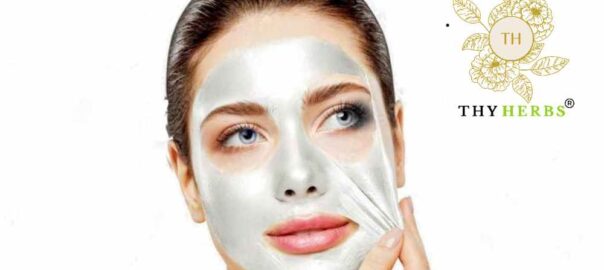How to Adjust Your Skin Care Routine for Climate Changes
Our skin is our body’s largest organ and it is constantly exposed to environmental factors such as climate changes, pollution, and UV rays. Therefore, it’s essential to adjust our skin care routine to keep our skin healthy and radiant in response to these changes. Here we’ll explore how to adjust your skincare routine for climate changes.
Hot and Humid Climate:
In a hot and humid climate, our skin can become oily and prone to breakouts. Therefore, it’s important to use a gentle cleanser and lightweight moisturizer to prevent clogged pores. Using a toner with salicylic acid can also help to control oil production.
Cold and Dry Climate:
During the winter, the air is colder and dryer, which can cause our skin to become dry and irritated. It’s important to use a heavier moisturizer with ingredients like ceramides and hyaluronic acid to help retain moisture in the skin. Using a gentle exfoliator and incorporating facial oils and serums can also help to hydrate and protect your skin.
Polluted Environment:
Exposure to pollution can cause oxidative stress, which can lead to premature aging and hyperpigmentation. Therefore, using an antioxidant-rich serum or moisturizer can help to protect the skin from free radical damage. Double cleansing can also help to remove pollution particles from the skin.
UV Exposure:
UV rays from the sun can cause skin damage and increase the risk of skin cancer. Therefore, it’s important to use a broad-spectrum sunscreen with at least SPF 30 every day, even on cloudy days. Reapplying sunscreen every two hours can help to protect the skin from UV damage.
High Altitude:
At high altitudes, the air is thinner and dryer, which can cause our skin to become dehydrated. Therefore, using a heavier moisturizer and lip balm can help to protect the skin and prevent cracking and peeling.
Why You Need to Change Your Skin Care Routine for Summer & Winter
It’s important to change your skin care routine for summer and winter. It is because the weather and environmental conditions during these seasons can have a significant impact on your skin. During the summer, increased sun exposure and heat can lead to sun damage, dehydration and excessive oil production . In the winter, cold temperatures, harsh winds, and indoor heating can cause dryness, flakiness, and irritation. Therefore, you need to adapt your skincare routine accordingly to address these issues and maintain healthy, balanced skin. By changing your skincare routine based on the season, you can prevent skin damage and maintain a healthy, radiant complexion.
Summer Skin Care
Summer is the season of outdoor activities, beach days, and picnics, but it’s also the time when our skin is most vulnerable to damage from the sun, sweat, and pollution. Therefore, it’s crucial to follow a proper summer skincare routine to protect and rejuvenate your skin.
Summer can be a challenging season for people with oily skin, as the hot and humid weather can cause excessive oil production, leading to breakouts and acne, dryness, fine lines, and wrinkles. Therefore, it’s important to focus on hydration during the summer months. Drinking plenty of water throughout the day is one way to keep the skin hydrated from within. It’s essential to follow a proper skincare routine to manage oily skin during the summer. One tip is to use a lightweight moisturizer that won’t clog pores and to avoid heavy makeup. It’s also important to exfoliate regularly to remove dead skin cells and prevent clogged pores.
When it comes to fighting acne, using a product containing salicylic acid or benzoyl peroxide can help to reduce inflammation and prevent breakouts. In addition, sunburn is a common issue during the summer, and it’s important to take steps to prevent it. Using a broad-spectrum sunscreen with at least SPF 30 and seeking shade during the hottest hours of the day can help to protect your skin from sunburn. If you do get sunburned, aloe vera gel or a cool compress can help to soothe the skin and reduce redness and inflammation. By following these tips, you can manage oily skin, fight acne, and prevent sunburn, keeping your skin healthy and glowing all summer long.
Winter Skin Care
Winter can be a tough season for our skin. Because of the cold and dry air our skin become dehydrated, flaky, and irritated. Therefore, it’s essential to follow a proper winter skincare routine to protect and nourish your skin. One tip is to use a heavier moisturizer that contains ingredients like hyaluronic acid or ceramides to help retain moisture in the skin. It’s also important to avoid hot water when showering or washing your face, as it can further dry out the skin. Humidifiers can be a helpful addition to your home to add moisture back into the air.
When it comes to managing dry skin, using a gentle exfoliator and incorporating facial oils and serums can help to hydrate and protect your skin. Additionally, enzema can flare up during the winter, and it’s important to use gentle, fragrance-free products and avoid scratching the skin. Using a moisturizer with a high oil content can help to soothe eczema-prone skin. By following these tips, you can protect your skin from harsh winter weather, manage dry skin, and fight enzema, keeping your skin healthy and hydrated all season long.
Protection from polluted environment
In today’s world, pollution has become an inevitable part of our lives. While it affects various aspects of our health, our skin is also exposed to its harmful effects. Polluted environments can cause damage to the skin, leading to problems such as dryness, dullness, premature aging, and acne. Therefore, it’s important to take steps to protect the skin from the harmful effects of pollution. One effective way to do this is by using skincare products that contain antioxidants such as Vitamin C or E.
These ingredients help to neutralize free radicals and prevent oxidative stress caused by pollution. It’s also important to cleanse the skin regularly to remove pollutants that accumulate on the surface. Additionally, wearing broad-spectrum sunscreen can help to protect the skin from UV rays, which can be intensified in polluted environments. By taking these steps, we can help to protect our skin from the harmful effects of pollution and keep it healthy and radiant.
Conclusion
Adjusting our skin care routine to climate changes is essential for maintaining healthy, radiant skin. By using the right products and following these tips, we can protect our skin from environmental factors and keep it looking its best all year round.










